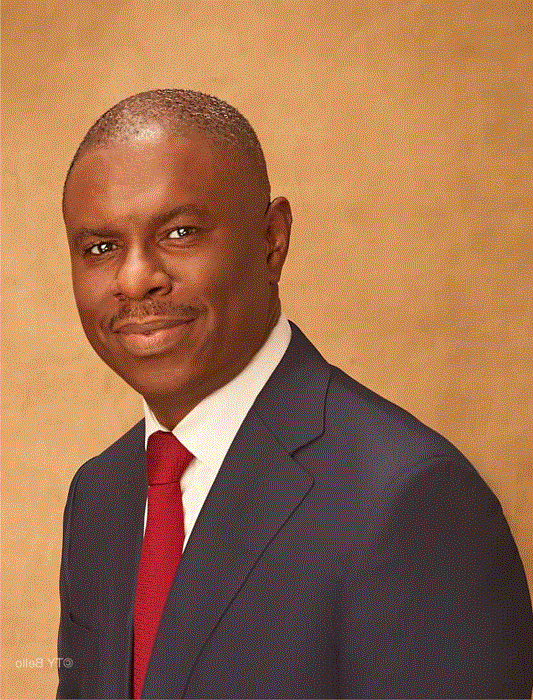Bailout Refund: Why States Are Walking A Tightrope
By Dan Onwukwe
The National Economic Council (NEC) established by provision of Section 153(1) and paragraphs 18 & 19 of Part 1 of the Third Schedule of the Constitution of the Federal Republic of Nigeria(as amended), has a profound mandate to “advise the President concerning the economic affairs of the Federation, and in particular, on measures necessary for the coordination of the economic planning efforts or economic programmes of the various governments of the federation. Membership of the Council which includes the 36 state governors, the Governor of the Central Bank of Nigeria(CBN) and other co-opted government officials, is presided over by the Vice President.
Last week’s meeting of the Council which holds every month, did not depart from the constitutionally-assigned mandate, but it was unique in many respects. It wasn’t because, as the Minister of Finance, Budget and National Planning, Zainab Ahmed revealed that the Federal Government has concluded all arrangement to forward the 2020 budget to the National Assemby next month , so that the country may return to the much-fancied January -December budget cycle. Rather, it has much to do with the revenue challenges faced by the Buhari administration and the need for the state governments to repay the the N614billion support loan given to the 35 states during the recession period in 2016.
Now, it seems, repayment time has come. It’s rattling the governors’ nerve paths. Reason: the economies of the states are creating national identity crisis. Neither is the financial profile of the Federal Government looking any good. A detailed look at the books shows there are storm clouds ahead. What really can be done in the immediate and long terms? Briefing State House correspondents last week, the Finance Minister gave indication that the Federal Government is left with no option but to ask the 35 state governments that took the loan facility to repay. Only Lagos state refused the credit facility in 2016. Each state government is likely to refund N17.5bn. This is no joke considering that most of the states are at present in danger and may not survive without Federal allocations. And so, government said it has resolved to set up a committee, comprising members of the Nigeria Governors’ Forum(NGF), who will partner with the CBN and officials of the Ministry of Finance, to draw modalities for the repayment. The decision to set up the committee came against the backdrop of the state governments insisting on a reconciliation of what each state will refund before any further step should be taken on the matter. It’s like buying time, hoping that they might be ‘saved by the bell’, maybe, from the President. The states, from all indications, fear that repaying the money now might plunge them into more financial crisis, as many of them are still struggling to pay workers’ salaries and carry out other developmental projects. New governors in the saddle at the states may have a good argument in this respect to defer the repayment, perhaps to a more convenient time in the future.
A dispassionate look at the state of the economy and financial crisis facing both the Federal and state governments, would support the condition reportedly given by the insolvent state governments. But a closer appraisal of the situation and the moves by the Federal Government to recover the funds, should be a welcome development, a wake-up call that might help reduce the financial recklessness of many state governors who see their state finances as their personal accounts. I remember one of the ex-governors of Imo state who was alleged during his tenure to have described the state funds as “my money”.
Ensuring that the states repay the N614bn support intervention will at least reduce corruption and enthrone some sort of accountability. We have been told that in spite of the directive by the Federal Government in 2015 for all states in the federation to embrace the implementation of the centralised Treasury Single Account(TSA), some state scoffed at that directive. Many of the states also don’t have any standardized processes in compliance with Public Sector Accounting Standards (IPSAS).
The absence of this is that, every so often, the expenditures of the states are at the fanciful impulse of the state governors. This makes the looting of state funds much easier, in some cases making some state governors richer than their states and they brag about it. And try as much as it does, the Economic and Financial Crimes Commission(EFCC) spend years on end to recover the looted public funds with little success. The looting goes on, leaving the states broke. So, the mismanagement of resources has not allowed better things to happen at the state and local government levels. The Economic Report of the states has since revealed that. Recent data from the Debt Management Office(DMO) showed that the 36 states of the federation have accumulated a domestic debt of N3.97trn as at end of March 2019, with the South-West geopolitical zone topping the table with domestic debt exposure of N1.04trn, followed by South-South, North-Central, North-West, North-East and South-East, in that order. Also, in May, 2019, the Economic Confidential, a reputable financial/economic magazine, released its its Annual States Viability Index for 2018. It showed that at least 17 states in the country are currently insolvent. Their Internally Generated Revenue(IGR) in the year under review were far below 10 percent of their receipts from the Federation Account Allocations in the same year.
The index computed by the report also revealed that without the monthly disbursement from FAAC, many of the states would be unviable, and perhaps may not survive. The IGRs are generated mainly through Pay As You Earn(PAYE), direct assessment, road taxes and revenues from Ministries, Departments and Agencies(MDAs) of government. In 2018, the IGR of the 36 states was N1.1trn. But the IGR of Lagos state alone was N382bn, more than that of over 24 states put together. Only three states from the North – Kano, Kaduna and Kwara states – have IGR above 20 percent of their respective allocations from the Federation Account. Only seven states in the South have IGR exceeding 20 percent of their funds from the Federation Account. The states are Lagos, Ogun, Rivers, Enugu, Ondo, Delta, and Edo.
Also, data from the Nigeria Extractive Industries Transparency Initiative (NEITI) show that 28 states might not be able to fund their 2019 budgets from revenue they realised in 2017 and 2018. The data were contained in NEITI’s Quarterly Review released in May this year. If this is not a foreboding signal, an imminent danger, tell me what else it entails. Therefore, it makes good economic sense to insist that the states repay the N614bn support intervention granted them in 2016, even if the window they are seeking for reconciliation of what each state will refund before any further step is taken is mutually agreed between them and the Federal Government.
One is not against the Federal Government agreeing to defer the deduction of the loan from the states’ statutory allocation or from other accruals, the point is that as painful as it may be for many of the states, he who borrows must repay. The financial wisdom is that prudence in management of resources is a check on reckless spending which has become an occupational disease that has afflicted many state governors in the country.
Dan Onwukwe write from The Daily Sun in Lagos



